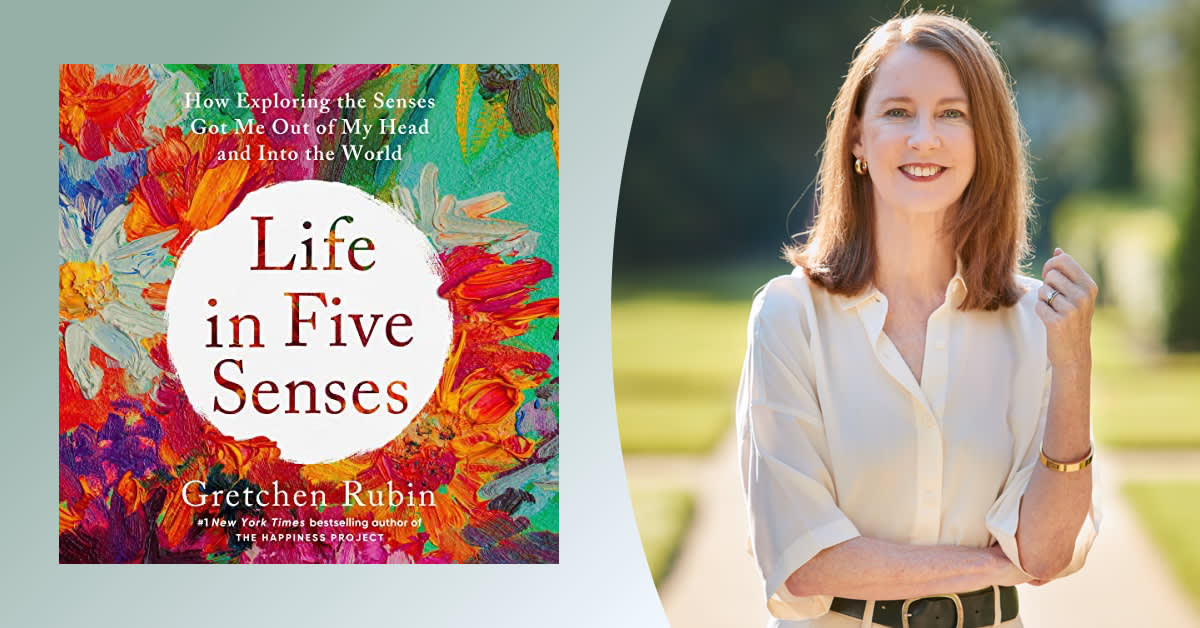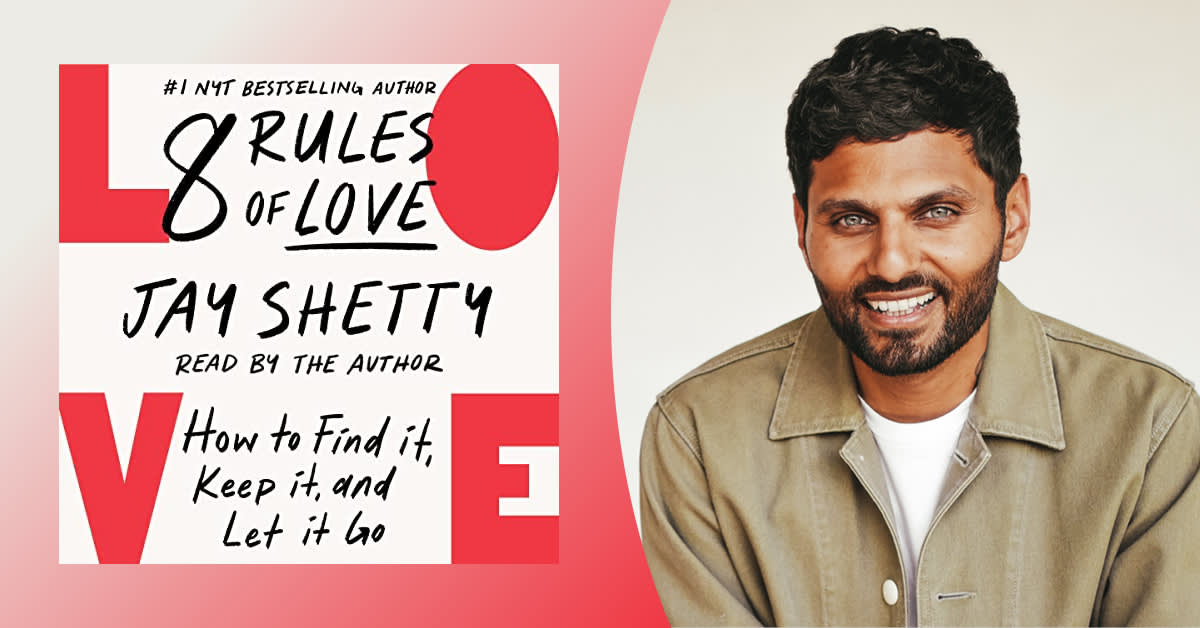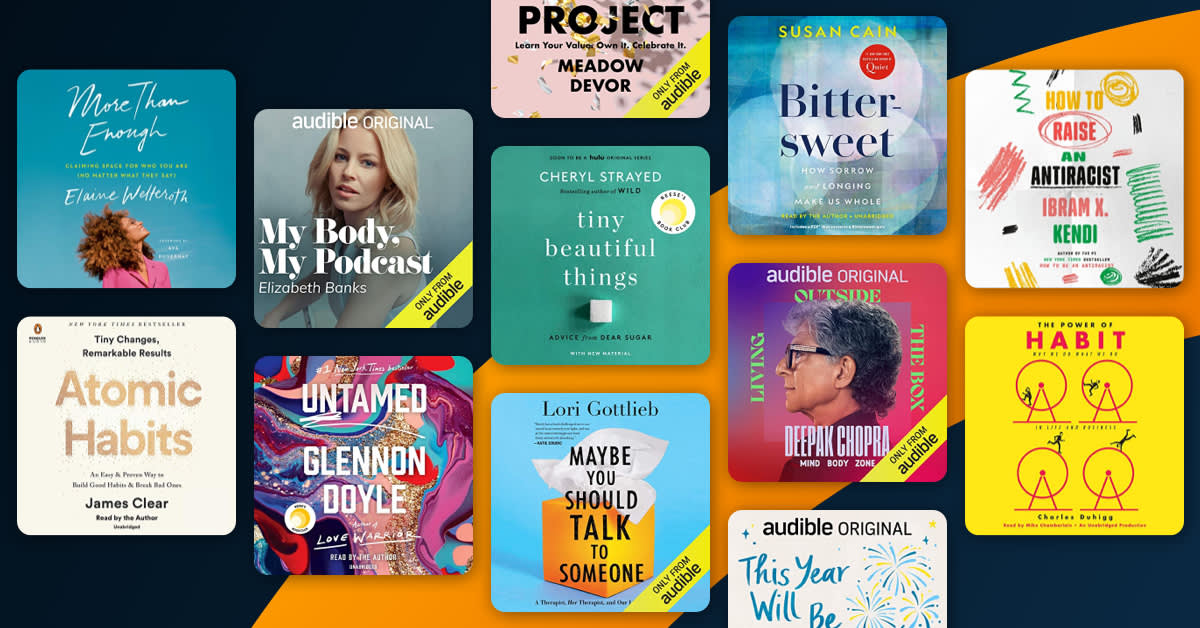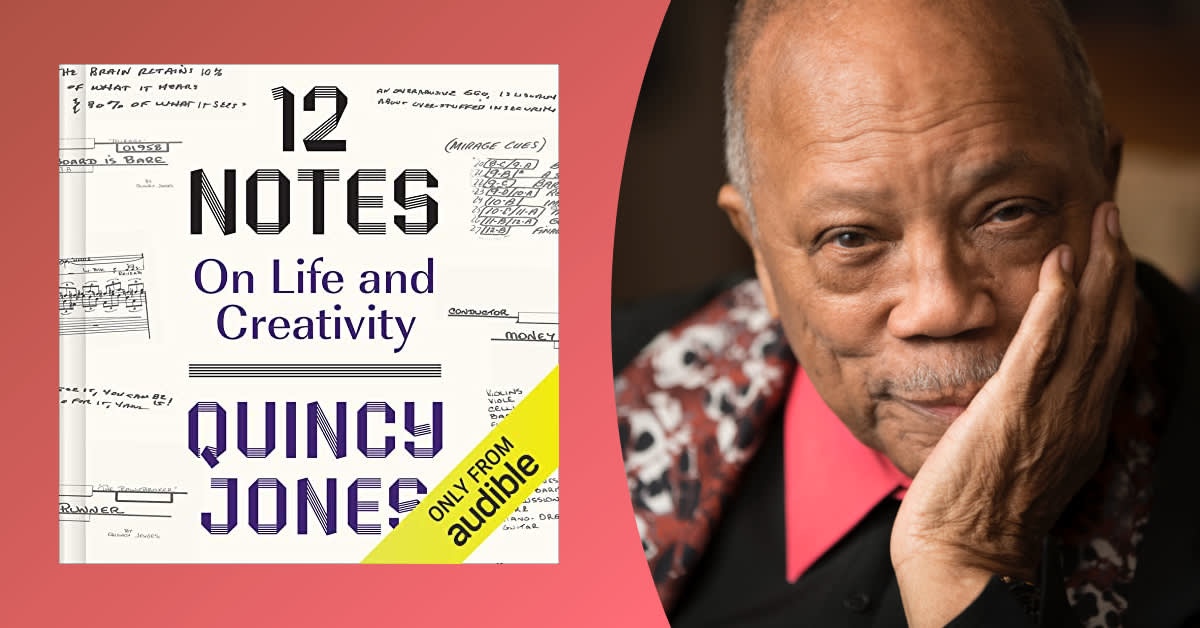Who doesn’t want to find more fulfillment from the everyday? In Gretchen Rubin’s latest listen, Life in Five Senses, the bestselling author reveals how mindfully accessing our five senses—sight, taste, smell, touch, and hearing—can lead to a deeper bond with the people and world around us. Here, she shares her new favorite sense, and how experiencing even the grotesque can help us increase our productivity and creativity.
Audible: How does Life in Five Senses build on the research you presented in your bestseller, The Happiness Project?
Gretchen Rubin: Life in Five Senses is absolutely a continuation of what I started with The Happiness Project. In The Happiness Project, I created a framework for building a happier life. I learned so much about why and how to strengthen my relationships, boost my energy, know myself better, and more.
I went on to write more books about happiness, such as Better Than Before (about habit-making), and to launch the Happier with Gretchen Rubin podcast, so with every year, I’ve been discovering new happiness-boosting resolutions, such as “Revive a dormant friendship,” “Follow the one-minute rule,” “Celebrate minor holidays,” and “Choose the bigger life.” I’ve experimented with dozens of happiness-boosting resolutions, and I still follow most of them. But despite all these efforts, a few years ago, I started to notice that I felt stuck in my head—disconnected from the world and other people, and also from myself.
When I tried to figure out what was missing from my life, I realized that I’d been treating my body like the car my brain was driving around town, but my body—through my five senses—was my essential connection to the world and to other people.
The more we know, the more we notice—I decided to turn my attention to investigating and exploring my five senses. What a joy it was to write this book!
Now that you’ve had some time to intentionally focus on experiencing the five senses, which would you say is your favorite and why?
It’s hard to choose … I think that my sense of smell is my favorite. I love the way a scent ties me to the present moment by telling me what’s happening right now—a friend just used hand sanitizer, my husband made coffee. Yet at the same time, a scent transports me into my past, the way the smell of cut grass always reminds me of mowing yards in high school.
Also, I can indulge in beautiful smells without spending any money, time, or energy, just by taking a deep whiff of clean towels, vanilla, oranges, a hardware store. And I do love perfume. These days, because many people prefer that others don’t wear scented products, I wear perfume to bed as a way to enjoy fragrance.
Plus, I enjoy the surprise of scent. You can’t see it coming! I love the way a scent will suddenly burst into my awareness. One thing that has surprised me—these days, I enjoy smelling even “bad” smells. I find myself taking a deep whiff as a garbage truck passes by.
What was the most surprising benefit you found from focusing on your five senses?
When I started this project, I expected that connecting with my five senses would make me happier, and it did—by helping me to cheer up, calm down, live in the moment, feel more delight, get more energy, deepen my connections, and even touch the transcendent.
The most surprising benefit related to creativity. When I began my five-senses investigation, I’d hoped it might spark my creativity and productivity—but I was unprepared for just how sparked I’d get.
One of my most ambitious experiments was to visit the Metropolitan Museum every day for a year, and these visits, in particular, fired my imagination. These daily breaks reminded me of a time I’d almost forgotten: recess. As a child, I was good at sitting still, focusing on my work, and finishing my assignments. But I loved recess too, when I was out of the classroom, on the playground, and doing whatever I felt like doing. As an adult, I’m still good at sitting still, focusing on my work, and finishing my assignments—and with my visits to the Met, I give myself the freedom of recess.
Research shows that breaks from mental effort help us stay productive and creative, and insights often emerge during times when our minds roam freely—before getting out of bed in the morning, during a commute, in the shower, during exercise. Walking too is great for creativity. As writer Virginia Woolf observed, “My mind works in idleness. To do nothing is often my most profitable way.”
My visits to the Met helped inspire me to create my Muse Machine, Five-Senses Portraits, Taste Timeline, Album of Now, Manifesto for Listening, Five-Senses Journal, and more. I hope that hearing about my experiments and experiences will have listeners springing out of their seats to engage with their own senses.
Want to Be More Creative? Wake Up and Smell the Coffee
Happiness expert Gretchen Rubin embarks on a tour through the five senses in search of meaning.





